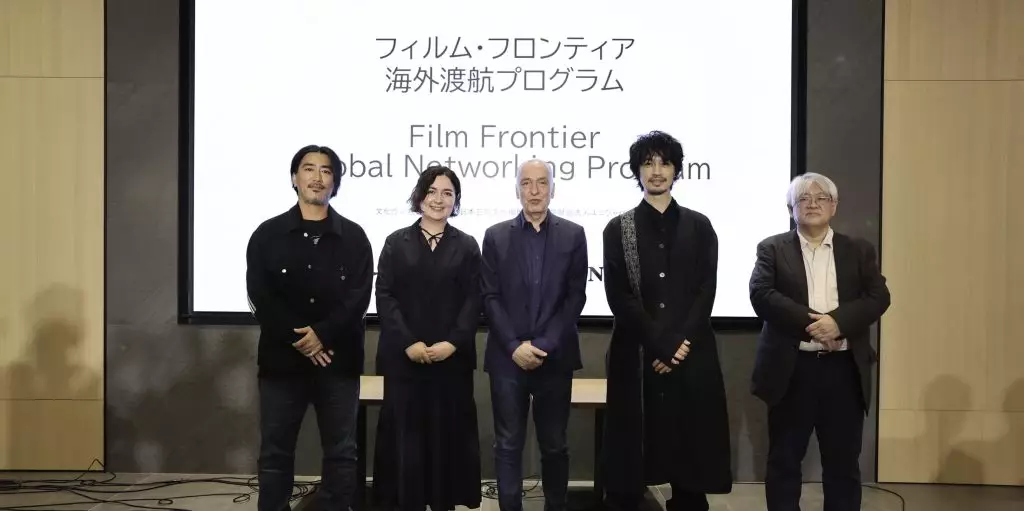In an era where global collaboration has become crucial for artistic growth, the Japanese film industry stands at a pivotal juncture with the introduction of the Film Frontier Global Networking Program. This innovative initiative was officially unveiled by Japan’s Agency for Cultural Affairs during the Tokyo International Film Festival (TIFF), marking a significant step forward in supporting emerging filmmakers. The program aims to empower a select group of creatives by honing their presentation skills, fostering international networks, and elevating their visibility on the global stage.
Running from December 1, 2023, to May 31, 2026, the program is designed to span an 18-month period for its inaugural cohort. The first group comprises four filmmakers: Shingo Ota, Emma Kawawada, Kohki Hasei, and Mai Nakanishi, all of whom are tasked with developing live-action films. Notably, the initiative will also welcome professionals from the world of animation in future iterations, thus broadening its scope and potential impact. Managed by UniJapan—which organizes the TIFF—the program aims to create an extensive support system for budding filmmakers, ensuring they are well-prepared to face the complex realities of the international film market.
Selection Criteria and Future Goals
The selection criteria for the program are rigorous, ensuring that participants demonstrate not only talent but also a commitment to their craft. Eligible filmmakers must be Japanese nationals or permanent residents with no more than three feature films to their name. This strategic limitation fosters a nurturing yet competitive environment, encouraging serious filmmakers to participate. Hirohiko Nakahar, a key figure from the Agency for Cultural Affairs, expressed the government’s commitment to nurturing the future of Japanese cinema and supporting passionate creatives who aspire to share their stories with global audiences.
Nurturing the Next Generation at TIFF
The Tokyo International Film Festival is increasingly focusing on nurturing new talent. Shozo Ichiyama, the festival’s Programming Director, highlighted how the selected projects balance ambition with a realistic strategy for completion. Such initiatives not only assist filmmakers in creating compelling narratives but also position Japanese cinema on a wider platform, thus enhancing its vibrancy and diversity.
Involvement from esteemed figures in international cinema, such as Christian Jeune, Cannes’ film department head, adds significant value to the program. Jeune’s insights emphasize the importance of not just building films, but also fostering relationships that can propel emerging talents. His references to the Cannes residency program illustrate the profound benefits that come from collaborative environments where filmmakers can discover their own paths with minimal constraints.
Takumi Saitoh, actor and director, pointedly remarked on Japan’s current landscape, noting the gap in residency programs that comprehensively support filmmakers throughout their projects. While educational institutions lay the groundwork, a structured environment for film professionals is crucial. Saitoh’s recent experience at the Cannes Film Festival highlighted that exposure to diverse viewpoints fosters growth and creativity. By establishing platforms for interaction, the Film Frontier Program aims to cultivate a community where ideas can flourish.
Looking Ahead: The Future of Japanese Cinema
As the Film Frontier Global Networking Program prepares to embark on its inaugural journey, its potential to reshape the fabric of Japanese film is palpable. The initiative not only showcases the dedication of the Japanese government to cultural promotion but also signals a shift towards a more interconnected cinematic world. By investing in the visionaries of tomorrow, this program is set to reinforce Japan’s position in the global film industry. As these filmmakers develop their projects, the ripple effects of their successes may pave the way for future generations of creatives, enriching Japan’s cinematic landscape and expanding its narratives to international audiences.
This program stands as a commitment to the vibrant future of Japanese cinema—a future that thrives on collaboration, innovation, and a rich tapestry of voices eager to be heard on the world stage.

